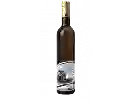
Winery Pierre GaillardCôte-Rôtie Les Viallieres
In the mouth this red wine is a powerful with a nice balance between acidity and tannins.
This wine generally goes well with poultry, beef or game (deer, venison).
Taste structure of the Côte-Rôtie Les Viallieres from the Winery Pierre Gaillard
Light | Bold | |
Smooth | Tannic | |
Dry | Sweet | |
Soft | Acidic |
In the mouth the Côte-Rôtie Les Viallieres of Winery Pierre Gaillard in the region of Rhone Valley is a powerful with a nice balance between acidity and tannins.
Food and wine pairings with Côte-Rôtie Les Viallieres
Pairings that work perfectly with Côte-Rôtie Les Viallieres
Original food and wine pairings with Côte-Rôtie Les Viallieres
The Côte-Rôtie Les Viallieres of Winery Pierre Gaillard matches generally quite well with dishes of beef, lamb or game (deer, venison) such as recipes of stuffed zucchini, irish stew or potjevleesch (meat in a pot).
Details and technical informations about Winery Pierre Gaillard's Côte-Rôtie Les Viallieres.
Discover the grape variety: Camaralet de Lasseube
The camaralet of Lasseube has its origins in the Pyrenees, in Bearn. It can be called gentil aromatique, petit camarau or moustardet. Its bunches are of medium size but its berries are small. The berries turn golden yellow when they reach maturity. This grape variety has two approved clones since 1998: 1023 and 1024. It occupies a little less than one hectare in France and is often vinified with other grape varieties such as lauzet and gros manseng. Camaralet de Lasseube is matured about twenty days after Chasselas. Its more or less compact and winged bunches are not affected by grey rot until after maturity. Its female flowers often expose this grape variety to significant risks of coulure, which makes it possible to obtain an alcoholic wine that is full-bodied but fine. Depending on the type, the aromas of the camaralet de Lasseube may recall fennel, pepper or cinnamon.
Informations about the Winery Pierre Gaillard
The Winery Pierre Gaillard is one of of the world's great estates. It offers 52 wines for sale in the of Côte-Rôtie to come and discover on site or to buy online.
The wine region of Côte-Rôtie
The wine region of Côte-Rôtie is located in the region of Rhône septentrional of Rhone Valley of France. Wineries and vineyards like the Domaine E. Guigal or the Domaine E. Guigal produce mainly wines red, white and sweet.
The wine region of Rhone Valley
The Rhone Valley is a key wine-producing region in Southeastern France. It follows the North-south course of the Rhône for nearly 240 km, from Lyon to the Rhône delta (Bouches-du-Rhône), near the Mediterranean coast. The Length of the valley means that Rhône wines are the product of a wide variety of soil types and mesoclimates. The viticultural areas of the region cover such a distance that there is a widely accepted division between its northern and southern parts.
The word of the wine: Heavy
Said of a thick, rustic wine that lacks finesse.














